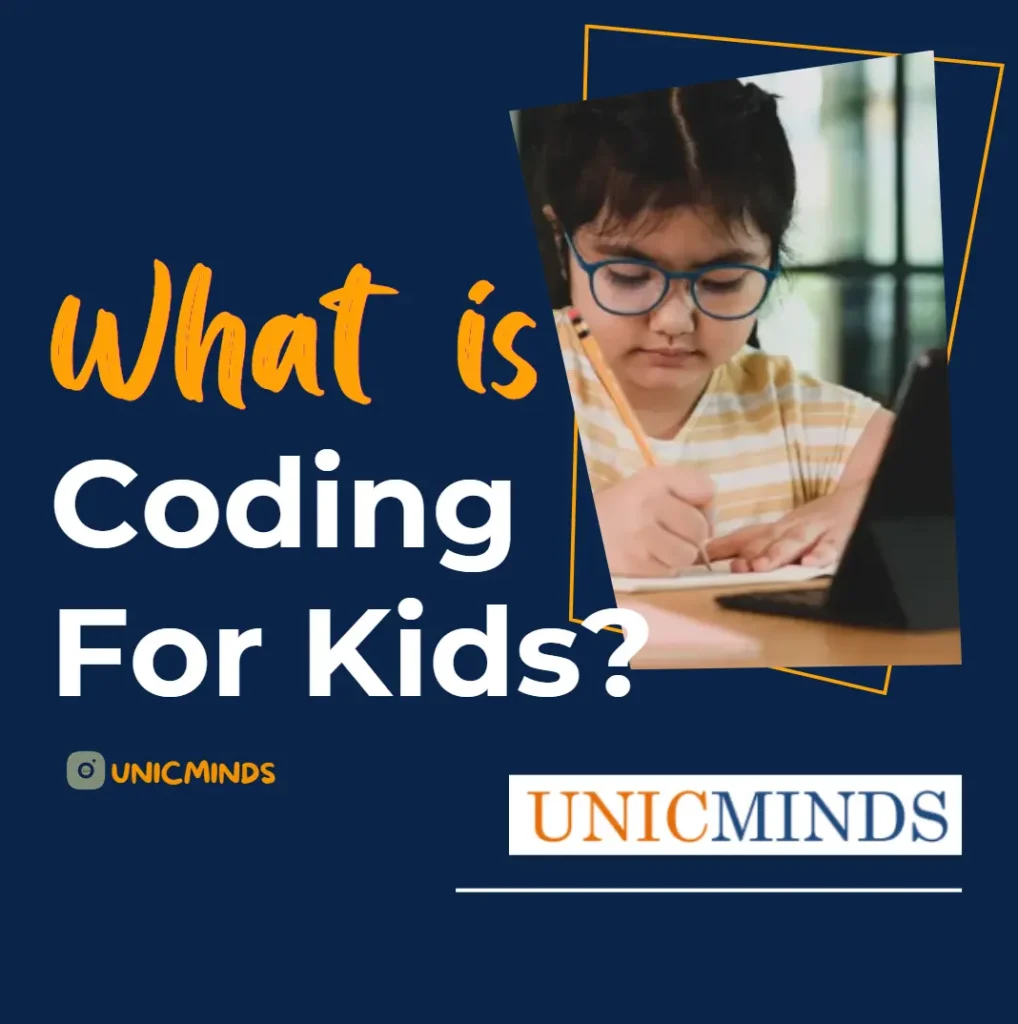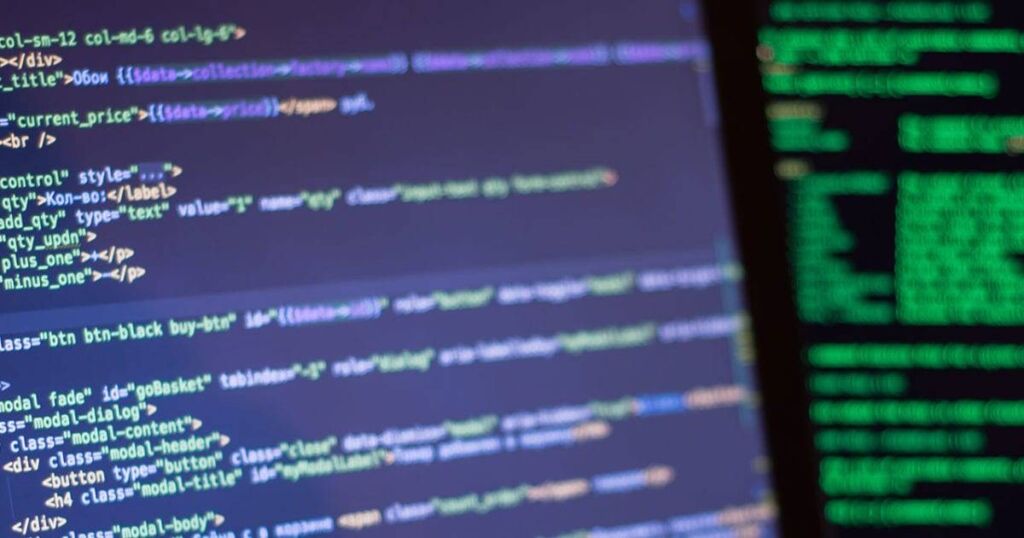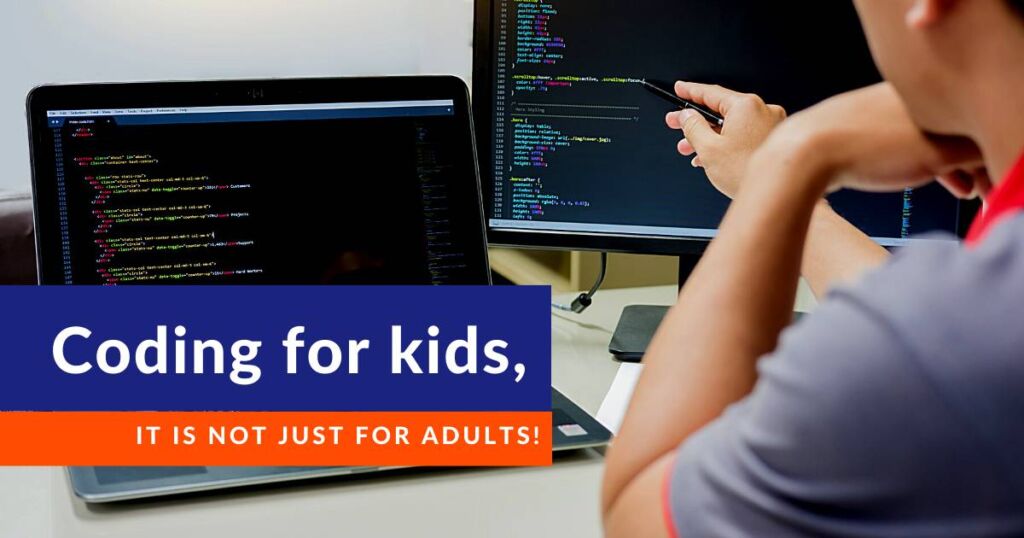The way we consume information and make use of it is changing really fast. AI will become more and more like a ubiquitous tool that will be available at our fingertips for much of our work. It will be a great tool that enhances our productivity and reduces mundane work. But, all of this was possible due to coding and mathematics – the two most important aspects of problem-solving. Mathematics is definitely more fundamental to problem-solving while coding is the real tool to execute it.
What is coding?
Simply speaking, coding is the language of the computer. It is you writing a set of instructions in a standard syntax of a programming language for the computer to interpret and follow those instructions and execute them. Learning to code is an important skill that gives you special advantages over other people who don’t know about code and products.
Coding for kids is an absolute essential today, and we are not saying that because we teach coding. Coding is one of the only things that can allow the child to integrate and bring together multiple subject knowledge and apply all that knowledge realistically to create something. For example, if you want to create a website or you want to create a prediction model, you will use design and mathematics in it. Students may learn these subjects individually, but alone these subjects don’t really provide an opportunity to solve problems. For example, I’ve studied matrices in mathematics when I was young, but I really didn’t know what it is until I started using that concept in the context of linear algebra in my code. That’s when I could really visualize the matrices that I learnt and could really understand the intuition behind matrices.
What is coding for kids?
Coding for Kids is not to overwhelm them with the syntax of programming languages. The main objective is for the children to solve different types of problems using code as a means. By engaging in giving logical instructions to computers, kids are developing problem-solving skills and computational thinking. It will be a waste of precious childhood time if you don’t teach them at least the basics of programming. Learn more about coding for kids, tweens, and students – is it required?
Coding involves:
- Imagining to solve a big problem, set the goal
- Break that big problem into smaller logical procedures and instructions
- Express these small steps in a particular language following syntax
- And, keep developing the patience, logical thinking, and critical-thinking to solve problems and debug problems.
How is coding useful to kids at a young age?
Critical thinking is among the most important causes of change in kids for their overall development, and especially to do well in the Science, Technology, Engineering, and Mathematics (STEM) areas. For a teacher, there is probably nothing more important than to enable a child to develop critical thinking skills and apply them in every situation.
To think critically is to continuously evaluate one’s assumptions and inferences carefully. Coding promotes critical thinking and problem solving in children. It is the bedrock skill that they will use tomorrow to crack exams, be successful in STEM areas, and to solve real-life problems in a logical manner.
Children should visualize a particular problem and try to figure out what kind of programming constructs – variables, data types, primitive data structures, advanced data structures, searching/sorting/scanning, loops, sequential flow, characters, and output variables – are to be used to make this program possible. And when there are warnings and errors and the desired output and desired action of characters is not achieved, they spend the most important hours of programming in debugging the root-causes of problems by analysing the program and spending time in the possible areas of the source code and placing break-points and comments to understand the detail. Learn more about what are the ways to teach coding well to kids.
Can kids really learn coding well?
I am a software developer with industry experience who is now teaching students at UnicMinds. If you’ll sit in one of the classes at UnicMinds, you will be surprised to see what kids are able to do at such a young age, the kind of complex programs they are writing and solving for – you will be truly surprised. This is possible because when you give a problem to a human mind and the necessary tools, the age doesn’t matter, the mind starts to have a crack at the problem.
Over this experience of teaching coding to thousands of kids at UnicMinds, I am genuinely convinced that coding is not being pushed on kids at a young age. We’ve achieved something remarkable by breaking the barrier that only grownups with significant mathematics exposure can learn to code. Coding can be learned and applied by kids. Learn more about how kids are learning coding which was only done by grownups until recently.
What are the various courses available for kids to learn coding?
There are many platforms for kids to learn coding such as Khan Academy, MIT Scratch Jr, and Google CS First. At UnicMinds, we provide more than 20 courses for kids ranging from block-based coding to advanced computer mathematical applications (shown below). Learn more about the range of coding courses for kids.
How early can kids learn coding?
Coding classes for young children don’t really emphasize memorizing how to use particular tools. Instead, the focus is on becoming familiar with ideas that are the foundation of all programming, like debugging, sequencing, and conditionals. Kids learn how to create rules and conditionals that are brought together to create something, like a new video game. Kids are not sitting in front of a computer and mugging up things. They are genuinely interestingly thinking about the problem in front of them and applying the programming constructs in a way to solve these problems. Pioneering coding teachers across the world have found that it is beneficial to introduce children to coding early as early introduction helps in creating procedural memories in the brain. When a child learns coding early, they also get a lot of time to apply and to intuitively visualize what they learnt, strengthening their concepts at a fundamental level. Learn more about how early is too early to teach coding to kids.
Should kids learn coding even if they don’t plan for careers in tech?
Even if you don’t plan a career in tech for your kid, it is important to introduce your child to coding for all that we discussed so far. It is like saying: I’ll not let my kid learn football because he is not going to become a footballer and what use is football to someone aspiring to become a doctor. Well, one might argue that football is a recreational sport, and any person can use it in life as a recreation irrespective of their profession and the same is not true with coding. Coding is as recreational as football. Period. Moreover, as technology is such a ubiquitous part of our world, the future generation that completely understands the technology has a real serious edge over people consuming it.
Learning coding will help the child move from a consumerist view of technology to a creator view of technology. Learn more in detail on why should kids learn coding even if they don’t plan for careers in tech.
Does learning coding have benefits for kids in non-STEM subjects too?
Absolutely, coding is not just for children interested in careers in tech or for children especially focused on STEM subjects. Learning to code has tremendous benefits for non-STEM subject applications too.
At UnicMinds, we provide children a great way to integrate subject learning along with coding. For example, children will write code to solve some math problems such as progressions, geometry, linear algebra and cell structure. This enables them to understand coding as a tool that can be used in the playground of computer-science to solve any problem from any subject. Coding can be applied to all subjects because it involves deconstructing problems into simpler sub-problems, sequential thinking, logical reasoning, and debugging the root-causes and solving problems.
Learn more about how coding is relevant for non-STEM subjects.
Should you choose online tutoring or offline in-person tutoring?
Online tutoring has gained popularity in the last few years across the globe. Online tutoring has specific advantages of personalized learning, flexibility in timings and deliverance, reduced inefficiencies in dropping and picking children and getting them ready, global access to best teachers in the field, and a far better value-to-spend ratio. Learn more about why choose online tutoring over offline.
How to encourage children to learn coding?
It is important for teachers to make learning coding exciting to kids. Children love to build and coding is all about that. But, if not taught properly it can be a bunch of boring rules and it misses the beauty of it. Ultimately, the more interesting and exciting you make it, the more likely they are to enjoy it. Kids can build different games, websites, and apps that they can relate to and use in their daily lives. For example, children at UnicMinds taking web development course build websites similar to mocks of ecommerce websites, food delivery apps, and location based services. Because they see people around using these services such as Uber, Zomato, and Amazon; they can relate to it and they find it very exciting. They get really excited and learn the tenets of programming properly. For example, when making the login and password screen they relate to all the websites such as Gmail, and when they see location based programming they relate to services like Uber. This connects what they’re learning in the class with what they see around and understand how those big apps are eventually built at a decent level of depth that a child needs to know.
Hope this is useful, thank you.
Coding Courses offered at UnicMinds are – Scratch, Space Programming, JavaScript, Python, Java, Minecraft, Roblox, Unity, C++, VBA Excel Programming, C#, 3D Game Development, App Development, Arduino, Basic Robotics, Computer Networks, Awareness of Ethical Hacking using Kali, and Computer Mathematics.
Hope this is useful, thank you.




